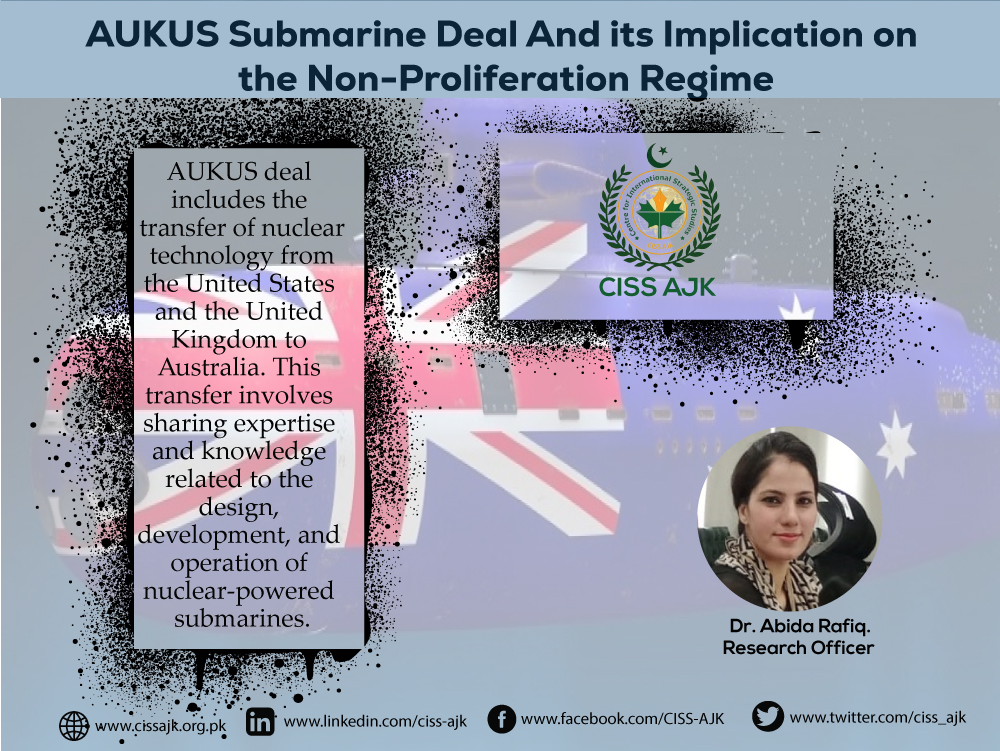725
The AUKUS submarine deal, announced in September 2021, involves the United States, the United Kingdom, and Australia partnering to provide Australia with nuclear-powered submarines. While the deal primarily focuses on enhancing Australia’s defense capabilities and regional security dynamics, it does have implications for the non-proliferation regime, particularly in relation to nuclear technology and safeguards.
As, the AUKUS deal includes the transfer of nuclear technology from the United States and the United Kingdom to Australia. This transfer involves sharing expertise and knowledge related to the design, development, and operation of nuclear-powered submarines. As a result, it raises questions and considerations regarding the transfer of sensitive nuclear technologies and the associated risks of proliferation.
On the other hand, the transfer of nuclear technology must adhere to non-proliferation safeguards and international agreements, primarily the Treaty on the Non-Proliferation of Nuclear Weapons (NPT). The NPT aims to prevent the spread of nuclear weapons while facilitating the peaceful use of nuclear energy. It requires states to fulfill their obligations, including the application of comprehensive safeguards by the International Atomic Energy Agency (IAEA). The AUKUS deal must ensure compliance with these safeguards to maintain the integrity of the non-proliferation regime.
The AUKUS deal may have implications for existing nuclear-weapon-free zones (NWFZs). NWFZs are regions where countries have agreed not to develop, acquire, or possess nuclear weapons. The transfer of nuclear technology to Australia, which is not a nuclear-weapon state under the NPT, may prompt discussions and concerns within the context of regional NWFZs, such as the Treaty of Rarotonga (South Pacific Nuclear-Free Zone Treaty).
Furthermore, the AUKUS deal has generated debates about its potential impact on regional security dynamics. Some argue that it could potentially lead to a regional arms race or increase tensions between countries in the Indo-Pacific region. Such concerns highlight the importance of maintaining transparency, dialogue, and confidence-building measures to mitigate the risk of escalating arms proliferation in the region.
The AUKUS deal also raises broader questions about the preservation of global non-proliferation norms and the balance between nuclear energy development and non-proliferation objectives. It underscores the need for ongoing discussions among states regarding the responsible use and transfer of nuclear technology, as well as the implications for the broader non-proliferation regime.
It’s important to note that the AUKUS deal is a complex and evolving issue, and its full implications on the non-proliferation regime will depend on the specific details of the technology transfer, safeguards, and subsequent developments. Ongoing monitoring, adherence to international agreements, and dialogue among relevant stakeholders will be crucial in ensuring that non-proliferation objectives are upheld while addressing regional security concerns.AUKUS Submarine Deal And its Implication on the Non-Proliferation Regime.



